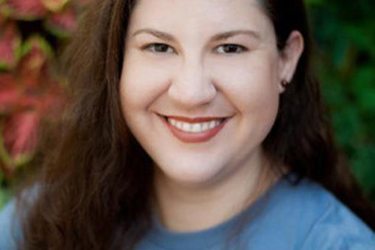YWA 2013 Nominee: Sarah Burris
When I came to the labor movement it wasn't just because I had an opportunity to try something different. The appeal was in working with a bottom-up union that allowed me the connectivity to the kind of people I knew best.

UPDATE: Congratulations to Young Women of Achievement awardees Jessica Livoti-Morales and Angelique Roche (community organizing/labor work), Elizabeth Lindsey (innovation), Tenley Peterson (leadership), Ali Rozell (political/campaign work), Merry Michelle Walker (service/nonprofit advocacy), and Julia Reticker-Flynn (women in the choice movement).
One thing is certain about growing up in the south, if you’re progressive you know why, because you’ve had to defend it in every political conversation. Politics isn’t something you talk about much, it’s like sex, everyone knows it goes on, but it isn’t polite to talk about it. “What do you do, Sarah?” the question is often asked. “Well, I work in politics,” I reply and wait for the stare of dread and uncertainty that comes across their face. “Well bless your heart!” Everyone takes a sip of iced tea and looks away.
When I started out, I knew I wanted to make a difference. I wanted to help. The unnecessary suffering that lined the New York Times crushed my soul each day had to stop. I’ve always been sensitive that way. I was young and idealistic, and I thought: if I just work hard enough maybe it would help … even a little.
One of my favorite movies is the dark comedy Death to Smoochy, where a purple rhinoceros dances and sings in a corrupt world of children’s television. But Smoochy’s pure idealistic mantra tells the kids, “You can’t save the world, but you might make a dent!” I knew I couldn’t save the world. The imperial, idealistic, westerner parachuting into a war-torn area, with the intent on forcing one thing or another, wasn’t really my scene. So that limited my options considerably, and despite my overwhelming patriotism, Valerie Plame pretty much confirmed the CIA wasn’t a happy place.
I did a few internships, but I ended up taking some time off from school to be a fundraiser for a Congressional race where the incumbent had an atrocious record of constituent services. My candidate was intent on being in office for many reasons, but one was that people in the district who needed help were being ignored by Washington. That was the beginning of a long road of trying to get strong, smart, amazing, women elected to offices at every level across the country. These women couldn’t save the world but they would save someone’s world. In fact, if they were elected they’d probably save a lot of worlds through policy and through services.
I then discovered the political youth movement, and found that if you get more young people involved in the process, more of my kind of people tend to get elected. No longer would my candidates have to pander on issues if we changed the face of the electorate. But what I found was that many of the pundits and consultants in Washington didn’t consider young people to be a priority. Most still don’t, in fact. I started writing about how they were wrong. I joined FutureMajority.com and Wiretap Magazine and in 2008 reported for Rock the Vote’s Rock the Trail and The Nation about every issue, candidate, or election from the youth perspective. I interviewed presidential candidates, the DNC and RNC chairs, then Speaker Pelosi, and elected officials across the country.
When I came to the labor movement it wasn’t just because I had an opportunity to try something different. The appeal was in working with a bottom-up union that allowed me the connectivity to the kind of people I knew best. By telling the stories of our members, their tragedies and triumphs on every online platform I could, maybe I could change the debate. If people only knew, I decided, maybe it might make things better. How could Americans look into the face of a working mother and tell her she should have to clean floors on her hands and knees for nine bucks an hour for the rest of her life? How could they meet these women and then tell them we needed to raise the retirement age so they have to do it for 4 years more?
While I appreciate being among the many young women nominated for achieving things, I’m not sure I’ve quite achieved the goal of fixing everything. But, I suppose that’s the beauty of our country. We are always a work in progress, an evolution of sorts. And while I’d like to think I’ve changed someone’s world either by helping them get a leg up or being a dedicated mentor or giving someone their first chance, my other goal is to help others understand that progressive southern gals are a force to be reckoned with. And if you invest the time in energy in recruiting, training, and mentoring them, we really will change the world.
